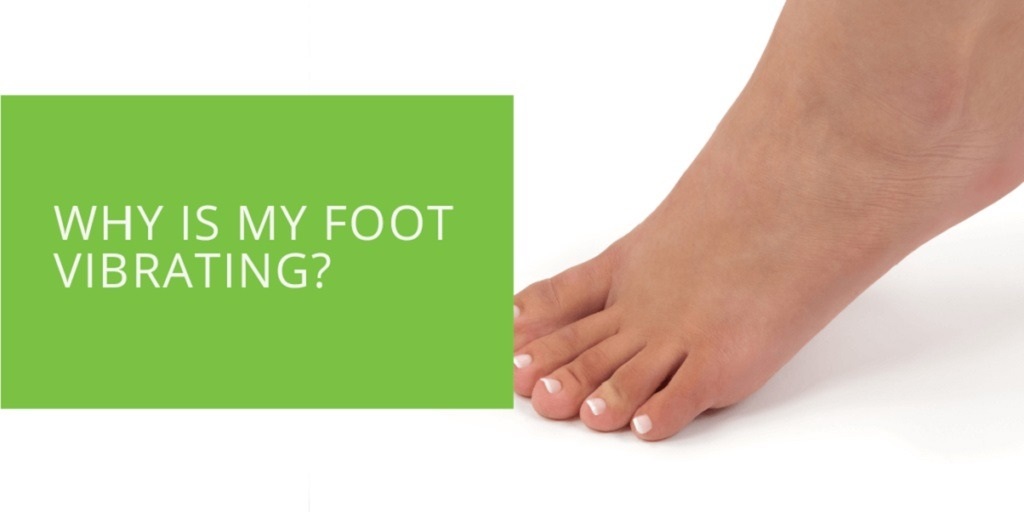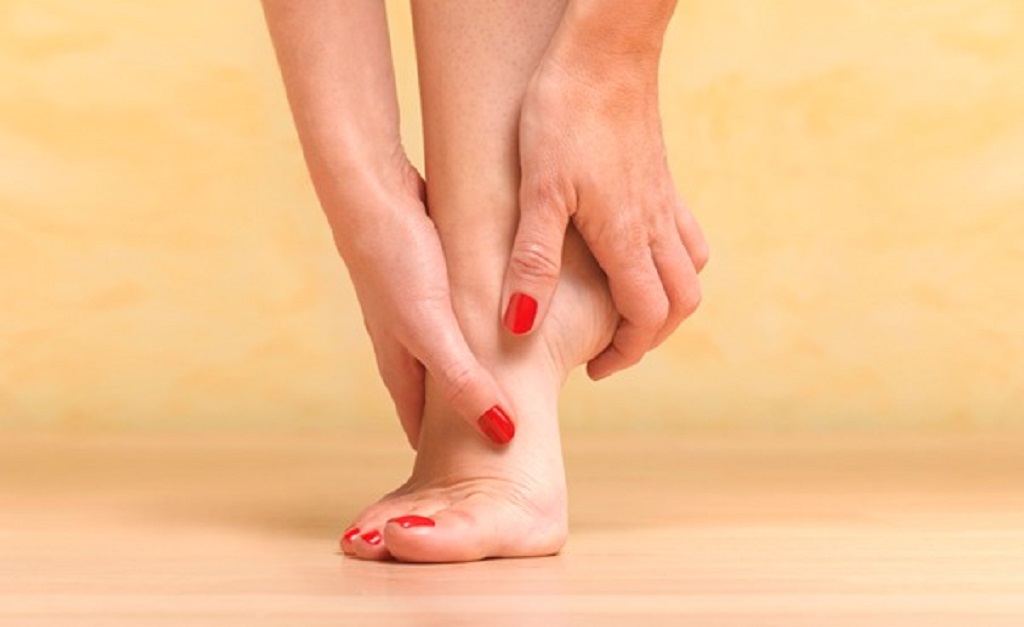
Have you ever felt a strange, phantom vibration in your foot—almost like your phone is buzzing in your shoe, only to find there’s nothing there? If you’ve asked yourself, “Why is my foot vibrating inside?” you’re not alone. This odd, tingling sensation—sometimes called “phantom vibration” or a “buzzing foot”—can be surprisingly common and unsettling. While it’s often harmless, persistent or recurring vibrations could indicate an underlying health issue.
In this article, we’ll explore the possible causes of internal foot vibrations, when to be concerned, how to manage the symptom, and what it could mean for your overall health.
What Does It Mean When Your Foot Vibrates?

The sensation of a foot vibrating internally is often described as:
- A faint buzzing or pulsing sensation
- A light tremor, almost like a cellphone vibrating
- Intermittent or constant internal twitching
- A feeling of electrical current or nerve “zaps”
This experience can happen in the heel, arch, toes, or the entire foot and might be more noticeable at rest or when lying down. While some people experience it once or twice, others may notice it repeatedly over time.
Common Causes of Foot Vibrations
1. Nerve Compression or Entrapment
One of the most common reasons for internal foot vibration is nerve-related. Conditions such as tarsal tunnel syndrome (similar to carpal tunnel in the wrist) can compress the posterior tibial nerve in the foot, leading to tingling, numbness, or vibrating sensations.
Other nerve-related issues include:
- Sciatica: Compression of the sciatic nerve can radiate down the leg and cause foot symptoms.
- Peripheral neuropathy: Often linked to diabetes, alcoholism, or vitamin deficiencies.
- Pinched nerves in the spine: Herniated discs in the lower back can affect nerves that reach the foot.
🩺 If your vibration is accompanied by burning, tingling, or weakness, it’s a good idea to consult a neurologist or podiatrist.
2. Muscle Fasciculations (Involuntary Twitching)
Muscle fasciculations are tiny, involuntary contractions of muscle fibers. These twitches can feel like vibration or buzzing under the skin. They are generally harmless and may result from:
- Fatigue or overuse of foot muscles
- Stress or anxiety
- Dehydration or electrolyte imbalance
- Caffeine overconsumption
While usually benign, persistent twitching could be a sign of a neuromuscular disorder, so it’s wise to monitor the symptom.
3. Vitamin and Mineral Deficiencies
A lack of certain essential nutrients can disrupt nerve function, causing unusual sensations like vibrations or tingling.
Common culprits include:
- Vitamin B12 deficiency: Known to cause nerve-related symptoms
- Magnesium deficiency: Can result in twitching and muscle cramps
- Vitamin D deficiency: Affects nerve health and muscle performance
👩⚕️ Blood tests can help identify and correct any deficiencies, especially if paired with fatigue, numbness, or brain fog.
4. Circulation Problems
Poor circulation or vascular issues can lead to strange sensations in the extremities, including vibration.
Conditions like:
- Peripheral artery disease (PAD)
- Raynaud’s disease
- Blood clot or DVT in the leg
While vibration alone isn’t always a sign of a vascular problem, it’s worth exploring if accompanied by cold feet, color changes, or cramping.
5. Restless Leg Syndrome (RLS)
Some individuals with RLS describe buzzing or crawling sensations, particularly at night. The exact cause of RLS is unknown but is believed to involve dopamine imbalance or iron deficiency.
If you notice:
- Vibrating feet at night
- An irresistible urge to move your legs
- Difficulty falling asleep due to leg sensations
You might be experiencing symptoms of restless leg syndrome. This condition is treatable with lifestyle changes and medication.
6. Phantom Vibrations
In today’s tech-centric world, phantom phone vibrations are a psychological phenomenon where people believe their phone is vibrating when it isn’t. This sensation can occasionally translate into foot vibrations, especially if you often carry your phone in your sock, boot, or side pocket.
It’s linked to:
- Digital fatigue
- Sensory memory
- Anxiety or stress
These vibrations are harmless but can be annoying or distracting.
7. Medication Side Effects
Certain medications may lead to neuropathic symptoms like internal buzzing or foot tingling.
Watch out for drugs such as:
- Chemotherapy agents
- Certain antibiotics (e.g., metronidazole)
- Statins (used for cholesterol)
- Antidepressants
Always talk to your doctor if new symptoms start after beginning a medication.
When to Worry About Vibrating Feet
While the occasional buzzing foot may not be serious, seek medical attention if you experience:
- Persistent or worsening symptoms
- Pain, numbness, or burning sensations
- Muscle weakness or balance issues
- Sudden onset of symptoms
- Changes in skin color or temperature
- History of diabetes, spinal problems, or autoimmune conditions
Early detection of nerve issues or systemic conditions can prevent complications down the road.
How to Stop the Foot Vibration Sensation
✅ Self-Care and Home Remedies
- Stretching and foot exercises: Especially if caused by muscle tension or nerve compression
- Hydration and electrolyte balance: Keep magnesium and potassium in check
- Massage or foam rolling: Releases muscle knots and nerve tension
- Limit caffeine and alcohol: Reduce overstimulation of the nervous system
- Warm foot baths: Improve circulation and calm nerves
✅ Medical Treatments (If Needed)
- Physical therapy for nerve or spinal compression
- B12 or magnesium supplementation if deficient
- Prescription medications for neuropathy or RLS
- Addressing underlying conditions like diabetes, thyroid issues, or autoimmune diseases
Preventing Future Vibrations
Prevention often starts with healthy lifestyle habits and body awareness. Here’s what you can do:
- Maintain a balanced diet rich in B vitamins and minerals
- Stay physically active to support circulation and nerve health
- Avoid tight shoes or repetitive strain on your feet
- Manage stress with mindfulness, meditation, or yoga
- Monitor and manage chronic conditions like diabetes
FAQs: Foot Vibration Sensations
🔹 Is it normal for your foot to vibrate for a few seconds?
Yes, short-lived vibrations are usually harmless, especially if they don’t recur frequently or come with other symptoms.
🔹 Can anxiety cause foot buzzing?
Absolutely. Anxiety can cause hyperstimulation of nerves, leading to twitching, buzzing, or tingling sensations.
🔹 Should I worry about vibrating feet at night?
If the vibrations are frequent and interrupt your sleep, it’s worth checking for restless leg syndrome or neuropathy.
🔹 Can dehydration cause internal vibration in feet?
Yes, lack of fluids and electrolytes can lead to muscle spasms and nerve misfires that feel like buzzing or vibration.
Final Thoughts: Listen to Your Body
Experiencing a vibrating sensation in your foot can be puzzling, but it’s not always a cause for panic. Often, it’s a benign result of nerve activity, muscle twitching, or temporary imbalances. However, if the symptom becomes chronic, worsens, or is accompanied by pain or numbness, it may point to an underlying medical issue that deserves attention.
Related Topic: How to Increase Followers with Targeted
✅ Call to Action (CTA)
If your foot has been buzzing for days or you’re noticing other unusual symptoms, don’t ignore it. Schedule an appointment with your doctor or a podiatrist to get a proper diagnosis and peace of mind.
Want more helpful insights like this? Subscribe to our health blog for weekly tips on staying well, understanding your body, and managing everyday symptoms like a pro.
